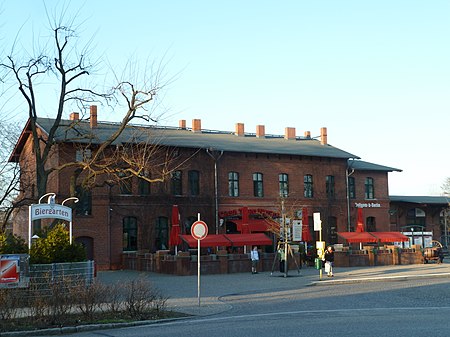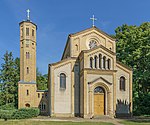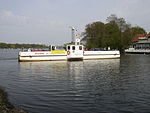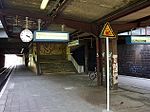Dallgow-Döberitz station
Buildings and structures in Havelland (district)Railway stations in BrandenburgRailway stations in Germany opened in 1871

Dallgow-Döberitz (German: Bahnhof Dallgow-Döberitz) is a railway station located in Dallgow-Döberitz, Germany. The station is located on the Berlin-Lehrte Railway. The train services are operated by Deutsche Bahn and Ostdeutsche Eisenbahn (ODEG). The station was opened with the construction of the Berlin–Lehrte railway in 1871 as Dallgow. It was renamed Dallgow-Döberitz in 1898. In 1996, as the railway was converted into a high-speed line, an island platform was built for the regional traffic.
Excerpt from the Wikipedia article Dallgow-Döberitz station (License: CC BY-SA 3.0, Authors, Images).Dallgow-Döberitz station
Nelkenweg,
Geographical coordinates (GPS) Address Nearby Places Show on map
Geographical coordinates (GPS)
| Latitude | Longitude |
|---|---|
| N 52.3237 ° | E 13.0334 ° |
Address
Nelkenweg 9
14552 (Michendorf, Willichslust)
Brandenburg, Germany
Open on Google Maps










